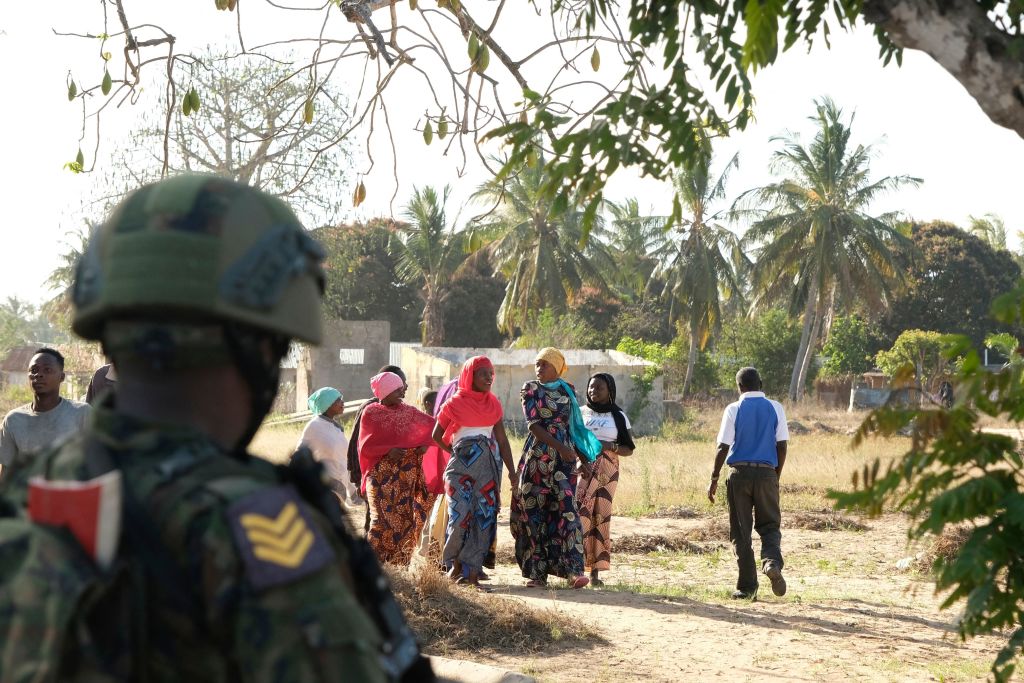ADF STAFF
The Islamic State group is operating in new places and using new tactics in Mozambique’s Cabo Delgado province after losing key leaders and being driven from former bases.
The IS has increased the use of improvised explosive devices while dispersing into smaller camps in dense forests and conducting cross-province operations. The terror group also has used child soldiers in recent attacks.
“The adoption of the new ‘modus operandi’ by terrorists demonstrates that there is new leadership within the group,” Mozambique’s Interior Minister Pascoal Ronda said in a report by Lusa News Agency. “The majority of the terrorist leaders are found in the districts of Macomia and Quissanga, with a highlight on Óscar, Dardai, Zubair, Mane, Sheik, Amisse and Machudee.”
The new IS leaders replaced Ibn Omar, Abu Kital, Ali Mahando and Amurane Adamo, who were killed in 2023 by the Mozambican Defence and Security Forces, Southern African Development Community Mission in Mozambique (SAMIM) and Rwandan forces.
The resurgent rebels have attacked coastal communities as well as residents of the Quirimbas Islands just off the coast. The terrorists have ambushed military patrols, brutally executed civilians and looted communities.
Under new leadership, the IS launched a furious assault on Macomia from May 10 to May 12. The group used boys as young as 13 to raid and loot the town, according to Human Rights Watch (HRW). The recruitment and use of children under age 15 as soldiers is a war crime.
Analysts described the operation as well-coordinated, conducted from several directions and one of the boldest terror attacks in Mozambique since the 2021 raid on Palma.
Witnesses said three groups of hundreds of militants arrived in the town around 4 a.m. on May 10. One group spoke to residents and looted businesses. Another group battled South African and Mozambican forces while the third group blocked Macomia’s main road, according to HRW.
Heavy fighting ensued.
“We need reinforcement, urgently,” a Mozambican Soldier said in a recording obtained by defenceWeb. “They’re coming to our base. We can hear the gunshots. They are here at the base.”
Roadside bombs destroyed two armored vehicles carrying South African forces deployed from Pemba to Macomia about 20 kilometers away but no Soldiers were injured. Mozambican President Filipe Nyusi said in a televised address that the terrorists withdrew after about 45 minutes of fighting, then regrouped and returned.
By mid-afternoon, the terrorists were looting the town, including a World Food Programme warehouse. They distributed the stolen goods to local residents, according to Cabo Ligado, a project published by the Armed Conflict Location & Event Data Project, or ACLED.
Distributing stolen food is viewed as a way for terrorists to garner favor among the public. They also stole 15 vehicles, including some from the Doctors Without Borders (MSF) relief agency, before leaving.
“These cars had been used to carry food to Mucojo,” witness Muchude Salimo Abudo told the state-run Mozambique Information Agency (AIM). “In fact, many things were stolen and burned at MSF and at the Foundation Against Hunger, as well as public institutions.”
Abudo said the terrorists killed more than 10 people, “most of them members of the defense and security forces.” Other witnesses said the IS did not suffer as many casualties.
“I saw two people injured on the side of the terrorists,” an anonymous witness told AIM. “Other people right here in the town saw the wounded loaded onto a motorbike heading towards Mucojo.”
Witnesses told HRW the insurgents included boys carrying ammunition belts and AK-style assault rifles. Two people from the same family said they recognized their 13-year-old nephew among the children.
“I saw him with my own eyes carrying a big gun and ammunition belt and acting like a confident big man,” Abu Rachide, the boy’s uncle, told HRW. When he called out to his nephew, Rachide said, the boy waved and continued his mission.
Jamal Jorge, a 47-year-old trader, stayed in the market during the attack. He said he saw more than 20 children among the fighters, as well as young men who spoke Swahili and Kimwani, a language of the Cabo Delgado coast.
“There in the market, I only saw children, some a bit older, maybe 17 or 20 years,” he told HRW. “But to me, most of them were children not older than 16 years.”
IS attacks are increasing as SAMIM gradually withdraws from the country; the mission’s mandate ends in July. Since January, the IS has claimed responsibility for 57 attacks in Mozambique compared to 51 for all of 2023, according to the Institute for Security Studies.
“The SAMIM drawdown provides IS not only with operational space, but also a major propaganda opportunity,” institute analysts wrote. “The situation signifies the greatest level of instability in Cabo Delgado since Rwandan troops and SAMIM were first deployed in 2021.”

